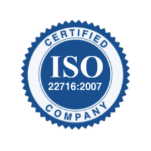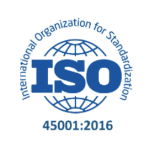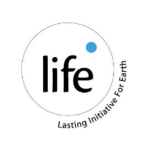Certifications

what are certifications?
ISO: International Organization for Standardization
It is an independent, international, non-governmental organization with members from 167 countries. Through these members, the organization aims to share knowledge and development, consensus and market-relevant international standards, supporting innovation and providing solutions to global challenges.
Boticário Group’s Certifications
ISO 9001:2015
Quality Management System
ISO 14001:2015
Environmental Management System
ISO 22716:2007
Good Manufacturing Practices in Cosmetics
ISO 45001:2018
Occupational Health and Safety Management System
Boticário Group also has LIFE Institute Certification
LIFE Certification is a voluntary process that offers recognition to businesses committed to conserving
biodiversity and maintaining ecosystem services.
ISO’s scope
ISO 9001

Source: ISO 9001:2015
This Standard is based on quality management principles. The principles of quality management are: customer focus, leadership, people engagement, process approach, improvement, evidence-based decision making, and relationship management. Certification to this standard aims to promote greater customer satisfaction, effectiveness and efficiency of the organization in achieving results and increasing the organization’s overall performance.
ISO 14001

Source: ISO 14001:2015
The objective of this Standard is to provide organizations with a framework for protecting the environment and enabling a response to changes of environmental conditions in balance with socioeconomic needs. This Standard specifies the requirements that allow an organization to achieve its environmental management system intended and defined results. A systematic approach to environmental management can provide a company’s senior management with the information necessary to achieve long-term success and to create alternatives that contribute to sustainable development. They are:
- Environmental protection by preventing or mitigating adverse environmental impacts.
- Mitigation of potential adverse effects of environmental conditions on the organization.
- Assistance to the organization in meeting legal and other requirements.
- Increased environmental performance.
- Control or influence the way in which the organization’s products and services are designed, manufactured, distributed, consumed and discarded, using a life cycle perspective that can prevent the involuntary displacement of environmental impacts within the life cycle.
- Achievement of financial and operational benefits that can result from the implementation of environmental alternatives that reinforce the organization’s position in the market.
- Communication of environmental information to relevant parties.
ISO 22716

Source: SGS
It is the Standard that describes Good Manufacturing Practices in Cosmetics, providing guidelines so that businesses from any position in the supply chain can regulate the production, control, storage, and distribution of cosmetic products. The objective of this norm is to help standardize cosmetic products in terms of quality criteria and provide brands with guidelines on how to identify and control hazards associated with cosmetics production, to ensure product quality, reduce recalls, and ensure consumer well-being.
For organizations, implementing an advanced standardization system will bring real advantages in the current production process, allowing them to reduce costs, provide consumer satisfaction, open access to new markets, improve commercial relations for product exports, and much more.
ISO 45001

Source: ISO 45001:2018
The purpose of an Occupational Health and Safety (OHS) management system is to provide a framework for managing OHS risks and opportunities. The objectives and intended outcomes of the OHS management system are to prevent work-related injuries and health problems for workers and to provide safe and healthy workplaces. Consequently, it is extremely important for the organization to eliminate hazards and minimize OHS risks by taking effective preventive and protective measures. When these measures are applied by the organization through its OHS management system, they improve OHS performance.
LIFE CERTIFICATION

Source: SVPS
LIFE Certification is a market tool that recognizes companies committed to biodiversity conservation. LIFE stands for “Lasting Initiative For Earth”. The process for obtaining LIFE Certification comprises a qualitative approach, applied to organizational management, and a quantitative approach, which establishes the minimum performance and evaluates the effectiveness of the actions taken. Companies that hold LIFE Certification obtain:
- Managerial benefits, because they anticipate procedures that will be common in the near future.
- Reputational benefits with its stakeholders in the commercial, governmental, and social spheres.
- Financial benefits, as it guarantees results from investments made in conservation.
- Market gain by anticipating compliance with non-tariff barriers.
- Certified companies can increase the number of actions and results in favor of natural heritage.
